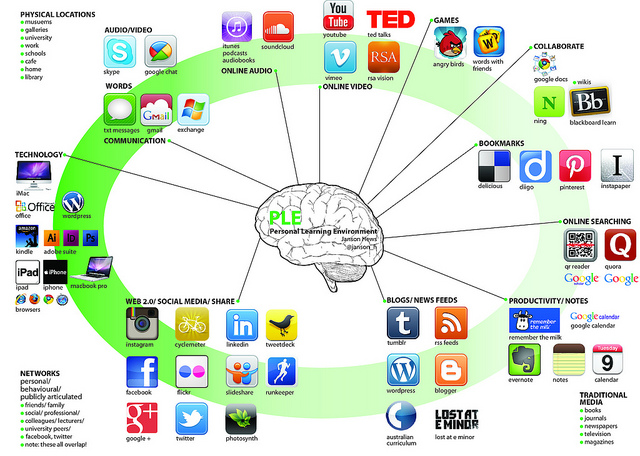The practice of active learning in library instructions can be traced back to the 90s and is seen to have exponentially expanded with the rapid advancement of technology. As opposed to the traditional lecture-based bibliographic instructions, engaging students in the learning process has become more and more indispensable in the current world.
The concept of brain-based library can be used to further enhance active learning environment in a library instruction. The presentation intends to relate active learning to the changing pattern of information access, which is crucial in dealing with the digital natives that become the patrons of today‘s libraries. Thus general findings from brain researches will be highlighted to associate with active learning instructions towards the transformation of brain-based libraries in developing future minds.
The presentation also aims to showcase what has been implemented in a Malaysian library context of active learning. Though not fully embracing the ideals of active learning, it can be observed that some methods of active learning have been employed in conducting library instructions, or locally commonly known as user education programmes.
Hasliza, A. is University Librarian of Universiti Sains Malaysia (USM) since 2002. Received a bachelor degree in History and Civilization from International Islamic University Malaysia (IIUM) and holds a Master Degree in Library and Information Science (MLIS) from University of Malaya, Malaysia. In 2002, worked as a cataloger for five years, and in 2007 she was offered a position as the head of Serial Department till February 2012. Responsible for handling acquisition of serial collections as well as subscription to commercial databases. Currently she is on study leave to do a doctorate study in Library Science at University of Malaya, Malaysia. Have a great interest in librarianship, cataloging as well as updated technologies.
Wan Emilin, WMA was born in Kota Bharu, Kelantan, Malaysia in 1975. Took an undergraduate study in Islamic Studies in International Islamic University Malaysia (IIUM), and continued a Masters Degree in Library and Information Science. In 2000 she was offered a position as librarian at the same university – firstly as a law librarian, then she was assigned to handle reference services and subject specialization in Islamic Studies. After 5 years in IIUM, she went back to her hometown to work in Perpustakaan Hamdan Tahir, the medical library of Universiti Sains Malaysia. She had taken up various positions in different divisions at the Library such as cataloguing and customer service, and currently in charge of the Reference and Research Division. One of her duties is to handle user education programmes at the library.
#p412 #iatul2012 Malaysian librarians tend to use brain-based learning in their instructional programmes
— IATUL 2012 (@iatul2012) June 7, 2012
#p412 #iatul2012 games:least used instruction method
— IATUL 2012 (@iatul2012) June 7, 2012
#p412 #iatul2012 even though we have same learning style, we engage in different patternings
— IATUL 2012 (@iatul2012) June 7, 2012
#p412 #iatul2012 learning is challenged and inhibited by threat
— IATUL 2012 (@iatul2012) June 7, 2012
#iatul2012 #p412 “Two-brain doctrine”: engaging both left and right brains with subject at hand » does story telling fulfil this criteria?
— Edward Lim (@BarbarianEd) June 7, 2012
#p412 #iatul2012 learning always involve conscious and unconscious processes
— IATUL 2012 (@iatul2012) June 7, 2012
#p412 #iatul2012 learning involves both focused attention and peripheral perception
— IATUL 2012 (@iatul2012) June 7, 2012
#p412 #iatul2012 every brain simultaneously perceives and creates parts and wholes
— IATUL 2012 (@iatul2012) June 7, 2012
#p412 #iatul2012 emotions emotions are critical to patterning twitter.com/iatul2012/stat…
— IATUL 2012 (@iatul2012) June 7, 2012
#p412 #iatul2012 learning engages the physical physiology
— IATUL 2012 (@iatul2012) June 7, 2012
#iatul2012 #p412 Brain-based learning similar to problem-based learning
— Edward Lim (@BarbarianEd) June 7, 2012
#p412 #iatul2012 brain is a parallel processor
— IATUL 2012 (@iatul2012) June 7, 2012
#p412 #iatul2012 brain- based: a way of thinking about the learning process
— IATUL 2012 (@iatul2012) June 7, 2012
#p412 #iatul2012 Four main components in conducting an active learning environment twitter.com/iatul2012/stat…
— IATUL 2012 (@iatul2012) June 7, 2012
#p412 #iatul2012 seven principles for good practice in undergraduate education twitter.com/iatul2012/stat…
— IATUL 2012 (@iatul2012) June 7, 2012




Respondents surveyed – mostly big classes and module-integrated programmes and kinda half-half when it comes to compulsory or not. Games and learning activities – low application. Display of materials and use of vivid colors seem to be applied more.
Interesting paper.